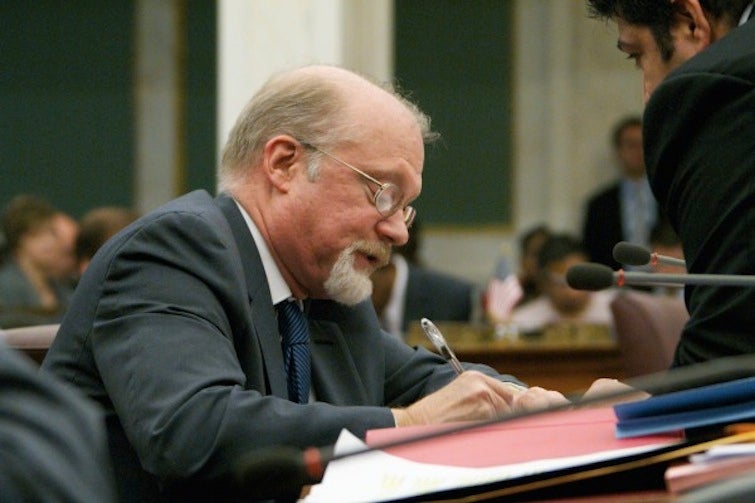Is “bikelash” on the decline in Philly because the bike-lashers are winning?

Streetfilms is out with a new video from last week’s Project for Public Spaces conference in which I proclaim “bikelash” in Philly to be waning.
I think that’s generally true, at least in many of the flatter, closer-in areas of greater Center City where bicycle commuting is a serious and growing contender for mode share – 20% in my census tract in Bella Vista!
In one telling, bikes are becoming less of a political flashpoint because they are now more common and accepted. Speaking anecdotally as a bike commuter, it does seem to me like we are getting closer to the point where there are enough bicycle commuters that drivers remember to look for cyclists, and where bikes increasingly set the pace of general traffic, at least on single-lane streets.
And on the political side, bike lanes enjoy substantial support from influential advocates inside and outside city government, like the Mayor’s Office of Transportation and Utilities, the Planning Commission, as well as registered community organizations (Fairmount and Francisville, for example) and Business Improvement Districts.
But there’s another narrative out there that says scaled back ambitions in the face of a recently-created veto point in City Council are substantially responsible for turning down the volume of bike politics.
Back in 2012, Councilman Bill Greenlee introduced a bill to make Philadelphia the only U.S. city with City Council control of bike lane approvals. After pushback from bike advocates, Council only ended up with control over bike lanes that remove a travel lane or parking. But since so many of Philly’s streets are narrow, introducing bike lanes on many of the streets with the highest bicycle traffic (18th Street, for instance) would require a redistribution of right-of-way from parked cars to bikes.
Which is just to say that District Council members now have control over many of the most interesting streets and potential street changes, and efforts to change them are now subject to the same basic political economy Matt Ruben described here, where block-level parking interests are structurally favored to win out over the broad citywide interest in a safe street network for bike commuters and pedestrians.
The fact of the new Council veto point has led some savvy practitioners to conclude that picking fights with City Council over parking would be an unwise use of the Nutter administration’s remaining time and political capital, and they would rather spend their energies looking for ways to build out the bike lane network without meaningfully challenging the existing distribution of public right-of-way between cars, bikes, and pedestrians.
And even then, bike lanes that are now supposed to be within the Streets Department’s purview – like the 22nd St. lane north of Spring Garden St. – sometimes still get held up over political pushback. Streets would ordinarily have striped the 22nd St. bike lane as part of the normal street repaving, since it wouldn’t take away an official travel lane, but at-large City Councilman Bill Greenlee (the ward leader in the area) is contending that since this section of 22nd St. is used informally as a two-lane street, striping one travel lane would be a de facto reduction in the level of service for cars which, he says, triggers Council oversight.
It’s hard not to infer that the spectre of Council’s itchy trigger finger has been a factor in the production of relatively timid proposals like the plan to outfit 13th and 15th Streets with “supersharrows” rather than extend the popular 13th St. buffered bike lane further southward.
In this telling, the bikelash has subsided because the bikelashers have largely won, at least for now, by changing the political calculus so that many of the most impactful streets changes one could imagine no longer make sense to pursue when the potential pay-off is measured against the advocacy effort required.
Supersharrows start to look more politically appealing if you can get them on the ground quickly without rustling any feathers, even if the infrastructure is functionally worse and less safe.
That’s a problem for Dena Driscoll, one of the organizers of Kidical Mass Philly, a regular family bike ride whose name is a play on Critical Mass, the politically-tinged mass group bike ride. Dena and her husband are part of a small but growing group of parents who use cargo bikes to transport their kids around the city, and she is disappointed in what she perceives as a slackening commitment from advocates both inside and outside the Nutter administration to winning physically protected bike infrastructure designed with safe mobility for families, pre-teens, and elderly cyclists in mind.
WHYY is your source for fact-based, in-depth journalism and information. As a nonprofit organization, we rely on financial support from readers like you. Please give today.




